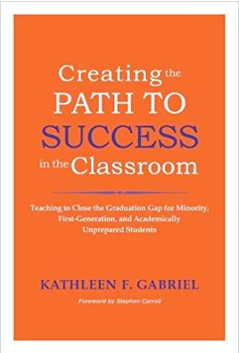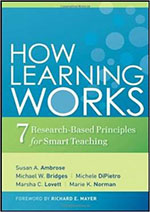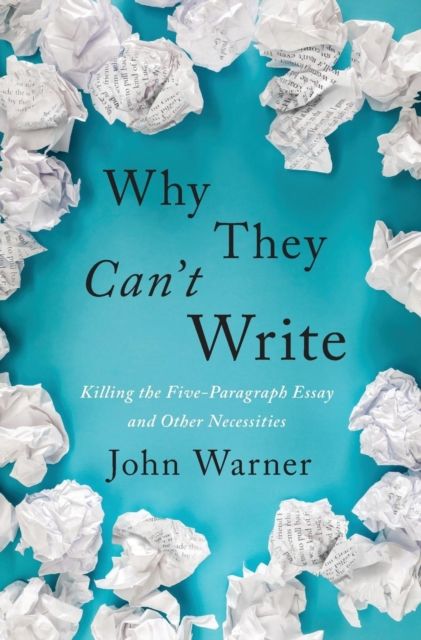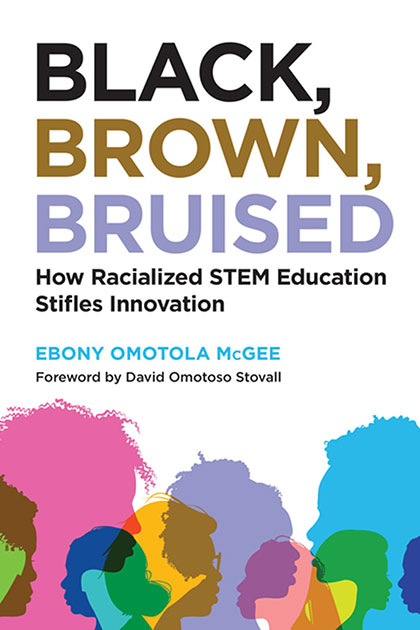Spring Faculty Reading Groups & Syllabus Clinics
This spring, CAT is offering the following fully online faculty reading groups. Each group will meet once a week for three weeks on Zoom to discuss the books in sections. Each book will be available electronically, so it will be possible to participate from anywhere. We hope you can join us! Please register here.
Creating the Path to Success in the Classroom: Teaching to Close the Graduation Gap for Minority, First-Generation, and Academically Unprepared Students
Wednesdays: 1/20, 1/27, 2/3
2:00 – 3:30 p.m. on Zoom
 Over the past few decades, extensive research has shown that we can significantly reduce opportunity gaps and enhance student learning by adjusting our teaching practices and the ways we structure our courses. But where do we start? Kathleen Gabriel’s book provides practical strategies for building our courses to ensure that more students learn more and more deeply. Gabriel offers concrete steps we can take to enhance student motivation, structure class time effectively, prompt critical thinking, design effective assignments, and create classroom climates that promote learning.
Over the past few decades, extensive research has shown that we can significantly reduce opportunity gaps and enhance student learning by adjusting our teaching practices and the ways we structure our courses. But where do we start? Kathleen Gabriel’s book provides practical strategies for building our courses to ensure that more students learn more and more deeply. Gabriel offers concrete steps we can take to enhance student motivation, structure class time effectively, prompt critical thinking, design effective assignments, and create classroom climates that promote learning.
How Learning Works
Thursdays: 1/21, 1/28, 2/4
12:00 – 1:30 p.m. on Zoom
 This book distills the research on cognition, translating decades of scientific literature into practical advice and introducing seven general principles of how people learn. The authors draw on cognitive, developmental, and social psychology, as well as educational research, anthropology, etc. The discussion spans issues from memory to motivation, integrating theory with real classroom examples. Participants will develop strategies for strengthening their own teaching through the application of these principles, with a focus on applying the strategies in the book to remote teaching and learning.
This book distills the research on cognition, translating decades of scientific literature into practical advice and introducing seven general principles of how people learn. The authors draw on cognitive, developmental, and social psychology, as well as educational research, anthropology, etc. The discussion spans issues from memory to motivation, integrating theory with real classroom examples. Participants will develop strategies for strengthening their own teaching through the application of these principles, with a focus on applying the strategies in the book to remote teaching and learning.
Why They Can’t Write
Fridays: 1/22, 1/29, 2/5
1:00 – 2:30 p.m. on Zoom
 Inspired by faculty complaints about students’ writing, especially that undergraduates have so much trouble sharing their own thinking—whether critical or creative—in clear and compelling ways, Warner argues that students’ trouble with college-level writing isn’t caused by a lack of rigor, or smartphones, or some generational character defect, but instead by standardized testing and other issues in the U.S. education system. He argues that students have been conditioned to perform “writing-related simulations,” in which they simply follow the rules to get the grade. Why They Can’t Write includes both a diagnosis and a proposal for improving the ways we teach writing throughout students’ lives, urging us to explore how people really develop the skills, attitudes, knowledge, and habits of mind of strong writers.
Inspired by faculty complaints about students’ writing, especially that undergraduates have so much trouble sharing their own thinking—whether critical or creative—in clear and compelling ways, Warner argues that students’ trouble with college-level writing isn’t caused by a lack of rigor, or smartphones, or some generational character defect, but instead by standardized testing and other issues in the U.S. education system. He argues that students have been conditioned to perform “writing-related simulations,” in which they simply follow the rules to get the grade. Why They Can’t Write includes both a diagnosis and a proposal for improving the ways we teach writing throughout students’ lives, urging us to explore how people really develop the skills, attitudes, knowledge, and habits of mind of strong writers.
How to Be an Antiracist
Wednesdays: 2/10, 2/17, 2/24
2:00 – 3:30 p.m. on Zoom
 Ibram X. Kendi, winner of the National Book Award, traces the structural functions of racism, helping readers see how policies and institutions perpetuate injustice. Participants will work on making their own lives and teaching practices more intentionally antiracist and will consider how to negotiate tough classroom conversations.
Ibram X. Kendi, winner of the National Book Award, traces the structural functions of racism, helping readers see how policies and institutions perpetuate injustice. Participants will work on making their own lives and teaching practices more intentionally antiracist and will consider how to negotiate tough classroom conversations.
Black, Brown, Bruised: How Racialized STEM Education Stifles Innovation
Thursdays: 2/11, 2/18, 2/25
12:00 – 1:30 p.m. on Zoom
 By examining the experiences of underrepresented, racially minoritized students and faculty who have succeeded in STEM, McGee invites readers to analyze and address structural, institutional, and individual decisions that perpetuate disparities in STEM education and careers. Since COVID-19 and remote instruction may have exacerbated already widening outcome inequities for many students of color in STEM, this faculty reading group will focus on improving STEM teaching and learning through anti-racist instruction, including decolonizing syllabi, avoiding deficit models, and addressing stereotype threat and implicit biases. Decolonizing STEM resources will be available, and participating faculty and TAs are invited to share their favorite resources as well.
By examining the experiences of underrepresented, racially minoritized students and faculty who have succeeded in STEM, McGee invites readers to analyze and address structural, institutional, and individual decisions that perpetuate disparities in STEM education and careers. Since COVID-19 and remote instruction may have exacerbated already widening outcome inequities for many students of color in STEM, this faculty reading group will focus on improving STEM teaching and learning through anti-racist instruction, including decolonizing syllabi, avoiding deficit models, and addressing stereotype threat and implicit biases. Decolonizing STEM resources will be available, and participating faculty and TAs are invited to share their favorite resources as well.
Play: How it Shapes the Brain, Opens the Imagination, and Invigorates the Soul
Thursdays: 2/11, 2/18, 2/25
1:00 – 2:30 p.m. on Zoom
 Do you have fun while teaching? Do your students have fun while learning? What role does pleasure have in intellectual growth? Is there room for play in a 21st Century college education? As we discuss Brown’s book, which explains why play is essential to our social skills, adaptability, intelligence, creativity, ability to problem solve and more, we will explore answers to these questions and others, and think of creative ways to apply what we learn from this fascinating blend of cutting-edge neuroscience, biology, psychology, social science, and human stories to our own lives and teaching.
Do you have fun while teaching? Do your students have fun while learning? What role does pleasure have in intellectual growth? Is there room for play in a 21st Century college education? As we discuss Brown’s book, which explains why play is essential to our social skills, adaptability, intelligence, creativity, ability to problem solve and more, we will explore answers to these questions and others, and think of creative ways to apply what we learn from this fascinating blend of cutting-edge neuroscience, biology, psychology, social science, and human stories to our own lives and teaching.
Upcoming…
Spring 2021 Syllabus Clinics
We’ll be holding open Syllabus Clinics before classes begin on Wednesday, Jan. 6th. You can drop in during any of the times below to discuss your syllabus, how you’ve designed your course, how you plan to use class time, or any other aspect of your teaching. In the meantime, we’re also available for one-on-one consultations with anyone who would like to work on spring planning. Please contact us at pro-teaching@fsu.edu. We look forward to working with you!
- Monday, January 4, 1:00 – 4:00 p.m.
- Tuesday, January 5, 10:00 a.m. – 4:00 p.m.



